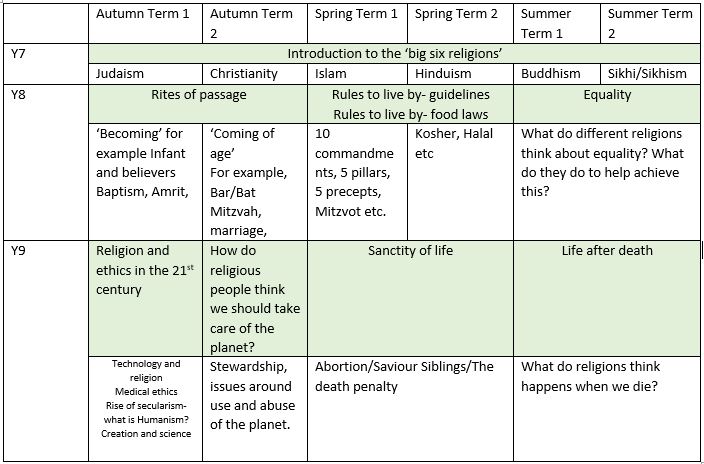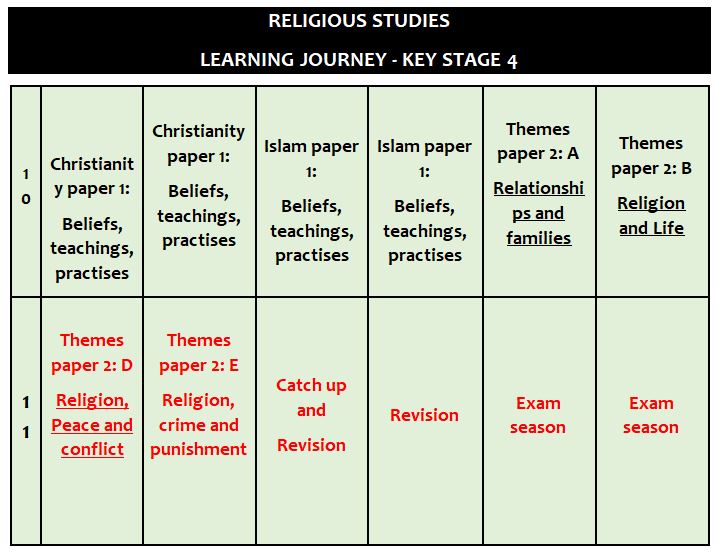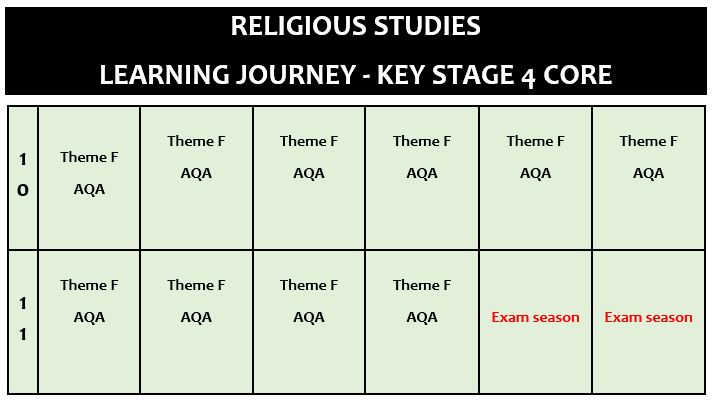R.E
Introduction to the Team:
Subject Leader – Miss Jones
Subject Teacher – Mrs Patel
Subject Aims/Intent:
We aim to reflect the values promoted by the school (Opportunity, Scholarship, Compassion, Aspiration) through a broad and balanced curriculum.
The curriculum is designed to adhere to the Locally Agreed Syllabus for Sandwell, which states the core content for KS3 should be “Learning in depth about Christianity + Sikhi + Islam, learning more about Hinduism + Judaism. Beginning to learn about Buddhism.” (Sandwell Locally Agreed Syllabus 2018) Alongside this we seek to celebrate the richness, history and diversity of our school community. OSCA students come from a variety of Christian, Islamic and Sikhi backgrounds with a few from the Sanatan Dharma religious community.
We will engage students by using relevant examples of controversial and significant issues and encouraging them to explore their own beliefs and opinions, what makes them who they are and the sort of person they want to be. Religious Education is not designed to promote or discourage belief in our students, but to give them the knowledge and skills to have informed opinions of their own. Students will look at diversity within religion and explore non-religious worldviews such as Humanism and atheism.
OSCA students should be able to understand how beliefs influence the values and lives of individuals and groups and how religion and belief have an impact on wider current affairs. The content will be derived from the disciplines of religion, philosophy and ethics and in doing so students will also learn how to analyse, interpret and evaluate sources. They should be able to appraise the practices and beliefs they study with increasing discernments based on analysis, interpretations and evaluation developing their capacity to articulate well-reasoned positions.
At KS4 we will equip students to perform well at GCSE level, using the discipline of theology to explore religious texts and viewpoints, critically analysing them and giving a justified conclusion on the significance of the issue discussed. For example, students will learn the UK law around marriage and divorce, religious teachings on the importance of marriage and the family, and then be able to explore how relevant marriage is in 21st Century Britain.
From September 2024, students will also be taking RE as a core subject meaning that all students will be taught RE at KS4.
Students will initially follow a two-week timetable where they will study RE once every two weeks. The students will study AQA Theme F to ensure that the subject content is age appropriate and meets the rigour required at KS4.


